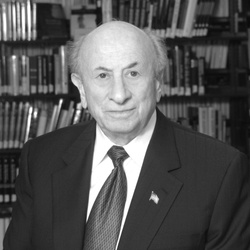Zakrzowek
Pronounced “Zahk-ZHOO-vek” (Russian: Закшувек / Zakshuvek , Yiddish: זאקז'ובק, Hebrew: זקז'ובק)
Catholic monks founded the village of Zakrzówek in the late 1200s or early 1300s. For centuries no Jews settled there. A 1781 document reported that only Roman Catholics lived in the parish. In 1793, the Hapsburg (Austrian) monarchy took control of Zakrzówek and the surrounding area. Around the same time, some Jewish families began to move to the village. By 1805, 66 Jewish residents were counted in a total population of about 2,000.
In 1815 Zakrzówek was transferred to the Russian Empire. The local economy received a boost when a large beet-sugar factory opened in 1866. After its bankruptcy in 1887, a Jewish merchant from Kiev (also spelled Kiew) bought the property which continued as a source of local employment for the next 30 years. Overall the village remained mainly agrarian. The first one-room schoolhouse did not open until 1899.
A Jewish prayer house opened in Zakrzówek in 1902 on the property of the sugar-factory owner. Still, the small Jewish community of roughly 200 continued to hold burials at the Jewish cemetery in the neighboring town of Kraśnik about nine miles away.
Jewish and Christian families in Zakrzówek suffered the destruction of World War I (1914-1918) as the Russian and Austro-Hungarian armies battled along the local Bystrzyca River. After the war, the town became part of the newly independent country of Poland. A small railroad built in 1922 connected the sugar factory to local beet farms. The Jewish population grew as seasonal workers came to labor in the sugar plant, though most earned a living as traders or craftsmen. Local economic development stalled when the factory closed in 1932.
Survivor Bernard Aptaker was born in Zakrzówek in 1926 where his family “kept a kosher house” and he attended cheder (Jewish elementary school). Sadly, even his earliest memories included being called names such as “Jewish pig” or “dirty Jew.” Other children threw stones at him. Aptaker later recalled his confusion and hurt, saying, “This earth gave birth to me just like it did to the other kids. … The Polish flag was my flag.”
German forces occupied Zakrzówek at the beginning of World War II in September 1939. Jewish residents were selected for forced labor. In October 1942, Nazis murdered some 50 children and elderly or disabled residents. Bernard Aptaker and his family were among the about 370 remaining Jews who were ordered to report to the Jewish ghetto in Kraśnik. The family initially hid with a Polish farmer, but the farmer feared for his own safety and turned the Aptakers away. Neighbors cornered Bernard’s youngest brother with pitchforks as they left.
Aptaker and his father and brother Stanley were sent to labor camps, while his mother and youngest brother Moshe were murdered at Auschwitz. Most of the Jews from Zakrzówek ultimately died at the killing centers of Bełżec and Majdanek.
Zakrzowek: Photographs & Artifacts
Destroyed Communities Memorial Slope
Zakrzowek: Survivors

We were tenants in someone else’s home. We found this out much to our regret when the Germans invaded Poland. This was not our country. We did not know that. I was born in Poland, I was Polish. The flag was mine, the anthem was mine, the nation—I was born there. The only thing that made me different, I found out much to my regret, was that I was born to a Jewish family.